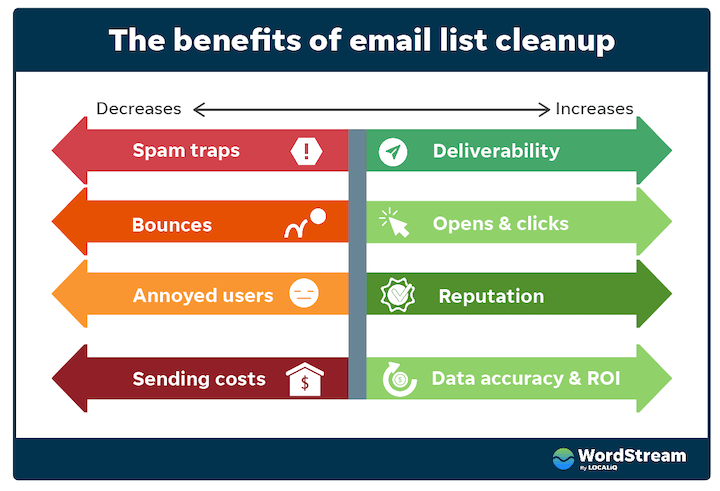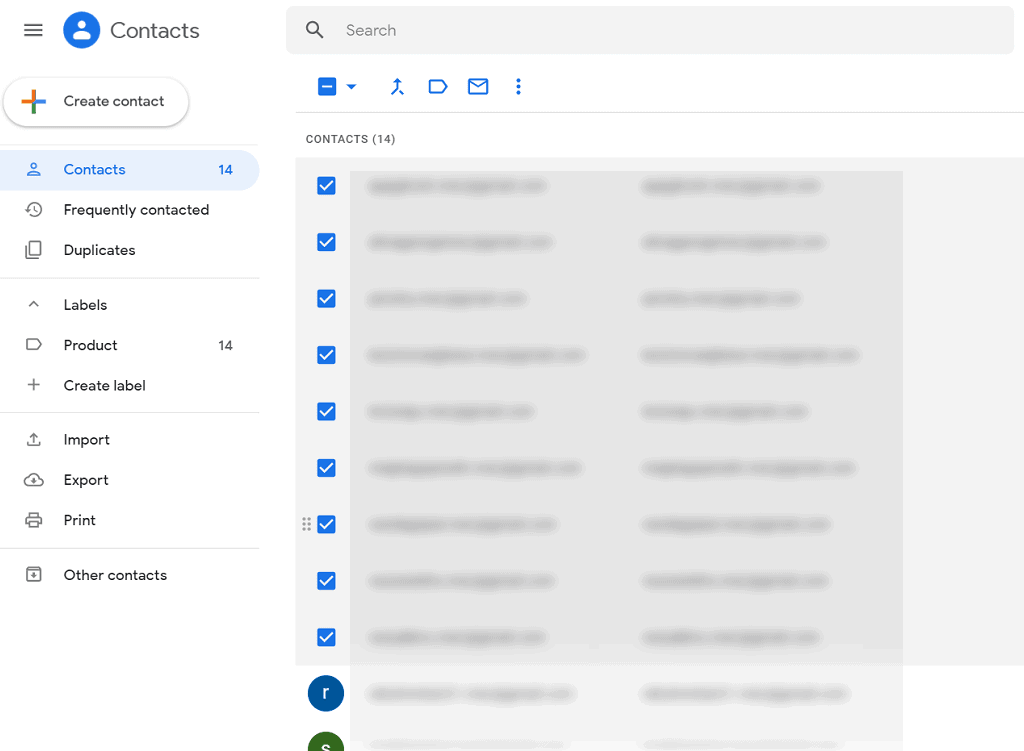What Should I Consider Before Buying An Email List Of Hematologists?
When you purchase a hematologist's email list, it's essential to be aware of a few key aspects to ensure that the list you purchase is reliable, accurate legal compliant, and appropriate to your goals in marketing. The most important considerations are: 1. Data Quality and Accuracy
Source of Data: Confirm that the provider of the email list has reliable sources. These include medical directories and professional directories. Hematologists may also opt in to receive emails once they've confirmed their consent. The accuracy of the contacts will determine the accuracy of the list.
Verification and Updates: Contact the provider to inquire about the data verification process. Verify email addresses to get rid of invalid or inactive addresses. Regular updates are important to ensure that the list is accurate, as healthcare professionals can change jobs or institutions.
Segmentation by specialization The list must be specific to hematologists. If you are able, break the list further, for example by subspecialty or location, years of practice, or connection to a hospital. Segmented lists can assist in targeting your outreach better.
2. Legal Regulations
Data Privacy Laws – Ensure the list complies with relevant legislation and regulations like California Consumer Privacy Acts in the U.S.A. or General Data Protection Regulations in Europe. This means that email addresses can only be obtained once consent has been granted.
CANSPAM Act: If reside in the U.S.A. Be sure your list conforms with the CANSPAM Act, which governs all commercial email communications. Infractions can result in penalties, and your emails could be marked as spam.
Opt-in Consent: Only add those doctors on the list who have explicitly consented to receiving emails from other third parties. Unsolicited emails sent to individuals with no consent could result in low engagement as well as legal issues.
3. Provider Reputation
Look for a reputable provider. Review, testimonials and cases studies can help you determine if the company is well-known. A well-established company with a solid reputation is more likely to provide accurate, high-quality information.
Transparency - Choose a data provider that is transparent in regards to the source of the data and the method of collection. The providers who are ambiguous and unclear on how they collect data ought to be avoided.
Customer Support - It's crucial to select a service who offers excellent customer service. There may be a need for assistance with technical issues, list customisation, or concerns about compliance. A solid support can make a difference.
4. Cost and Return On Investment (ROI).
Pricing Model: Think about the pricing structure offered, whether pay-per-contact, flat-fee, or subscription-based. Check that the price is aligned with the potential return on investment. Balance the list quality and quantity to your budget.
Refund and Replacement Policy. The majority of reputable companies offer the option of a refund or replacement policy in the event that the email address is not valid or has expired. Clarify this policy's terms before making a purchase.
Value for money: Check the features on the list (such as segmentation, and the accuracy of the data provided by the service provider) against the cost. The list with the lowest price may not necessarily provide the best value if data quality is low.
5. Use and Ownership of Data
Multi-Use vs. Single Use Multiple Use: Read the terms and conditions before using an email list. Some email service providers allow you to use their lists for one campaign. Other providers may grant the full ownership of the list and unlimited usage rights.
Exclusive vs. Shared Lists: Decide whether the email list is a private list for your company or is shared with buyers. Exclusive lists typically offer more engagement since the contacts will be less likely to receive marketing emails from different sources.
6. Data Integration and Format
Integrity with CRM and Email Tools: Ensure that your email list can be easily connected to your CRM or email marketing platforms. To make it easy to integrate, the list should be in a standard format such as CSV or Excel.
Easy of Use: Evaluate how easy it is for you to sort and manage your list. Lists that are difficult to work with or segment can hinder the effectiveness of your advertising campaigns.
7. Ethical Questions
Relevance to Hematologists Be sure that the email you send out is appropriate for hematologists. If you send them content that doesn't coincide with their expertise may result in a lack of engagement and negatively affect the reputation of your brand.
The sending of too many emails could be considered spam. If you send too many emails, you can damage the reputation of your email sender.
Conclusion
An email list of hematologists is a great method of marketing that is targeted at a specific audience, but you need to be careful when buying one. It is important to consider the accuracy of data and privacy laws, and reputation of the company that offers the list to obtain a reliable and useful list. The importance of segmentation and legal compliance will maximize your ROI, while ensuring that you have a positive image for your company. Follow the recommended hematologists email list for blog advice.

What Are The Things I Should Consider Before Purchasing An Appending Data?
The consideration of a data appending service is important. It is important to consider a variety of factors to be sure that the data appending service can improve the accuracy and quality of your data while also keeping ethical, legal, and compliance standards. Data appending is the process of enriching your database with missing or extra information, such as emails, phone numbers and demographic information. Be aware of these aspects when purchasing the data appending service. Data accuracy and quality
The source of the data: Make sure that the company appending data uses trustworthy, high-quality sources such as public records or opt-in directories. Trustworthy data providers typically get their data from reliable sources. This guarantees that the data appended is current and accurate.
Verification Process: Determine whether there's a process in place for the provider to verify and confirm the information. This assures that the data is current, accurate, relevant to your needs and that it is appropriate. As part of the service provided by your provider you can expect frequent updates and cleansing of data.
Match Rate: Providers have various match rates. This is a reference to how many of your records could be improved by incorporating new information. Try to strike a balance between a high rate of match and data accuracy. High match rates are crucial however, they shouldn't come at the price of quality.
Customization: Make sure that the company offers custom options for appending data. You might want to include different kinds of data, for instance firmographic or demographic information, behavioral data, contact details.
2. Data Security and Privacy
Compliance with Regulations : Data appending requires handling personal data which means that the service must adhere to relevant privacy regulations and laws. These include General Data Protection Regulation (GDPR) as well as the California Consumer Privacy Act(CCPA) as well as any other privacy laws that are applicable. Appended data needs to be processed and legally collected in order to avoid fines and damage to reputation.
Consent Management: Ensure that all information you share is from those who have explicitly agreed to their information being shared. Beware of data sources that rely on shady practices or that violate the privacy of users as this can lead to ethical and legal issues.
Data Security: Verify that the company you choose to use strict security measures for data to ensure the integrity and security of your existing database as in addition to the information that's added. Included in this are secure data transfer protocol encryption, access controls as well as other security measures.
3. Provider Reputation
Reputable Vendor: Choose one with a solid reputation for offering precise and reliable data appending services. You can evaluate their past performance by reviewing testimonials, case studies, and reviews. A well-established vendor is more likely to offer quality services and will ensure legal compliance.
Industry Specialization: Certain companies specialize in particular industries such as healthcare and finance. If your company is in a specific market, look for a vendor that has expertise and experience in your sector. These vendors may have more specialized solutions to fulfill your needs.
4. Cost as well as Return on Investment (ROI)
Pricing Models. Service providers that append data offer a range of pricing options, including pricing per record. It is essential to understand the structure and determine if it will fit into your budget. Avoid low-cost options which could be an indication of poor data quality.
Calculate the potential ROI on investment by appending information. A reliable service can assist you in improving your marketing performance, increase engagement and boost conversion rates. Compare the costs of the service against the benefits you can expect from having more accurate, actionable data.
5. Data Types & Appending Options
Types of data: Think about the types of information you'd like to include in your database. The most popular kinds are:
Email addresses: crucial for emails for marketing campaigns.
The importance of phone numbers is in sales outreach and customer support.
Demographic Data: Helpful to segment and target marketing.
Firmographic data is vital for B2B businesses that wish to focus their efforts on businesses based on revenue, employee numbers, or industry.
Profiles on Social Media: Certain providers allow you to add your social media handles. This can be helpful for digital and social marketing.
6. Data Integration and Format
Compatibility. Make sure that the information you upload is compatible with the tools or systems you are using for example, your customer relationship management system (CRM), marketing automation software or any other applications. CSV, Excel and API integration are all acceptable formats to import data.
Data Cleaning and Enhancement: A reliable service provider will provide data cleaning as an appending service. Appending involves the correction of incorrect data and duplicates, and the elimination of older records. Data enrichment includes more than just adding new data. It also enhances the accuracy and quality of your current database.
7. Ethical Considerations
Transparency: Service providers must be open about the source of appended data as well as the method by which they're gathered. Ethical data-appending services have strict policies about the collection and use of data and will make sure that the data obtained is processed in a clear and legal manner.
Be aware that the addition of details about contacts, like email addresses or phone numbers shouldn't lead to unwanted or intrusive practices. Utilize appended data with caution. Use the best practices for reaching out, provide opt-outs, and protect the privacy of your customers.
Conclusion
Be sure to consider the quality of data as well as the legal compliance and reputation of the provider when purchasing data appending service. Services that provide secure, verified data and comply with privacy regulations such as GDPR or CCPA must be considered first. Be sure that the data appended is compatible with your system and take into account the potential return on investment in reliable data. If you select the right company and focusing on ethical practices, data appending can significantly increase your marketing efforts and business performance. Check out the recommended data appending services for website recommendations.

Comments on “Handy Guide On Selecting An Email List Website”